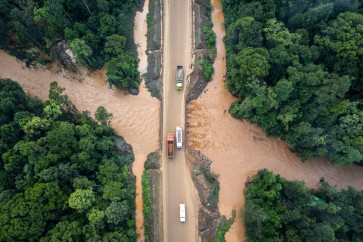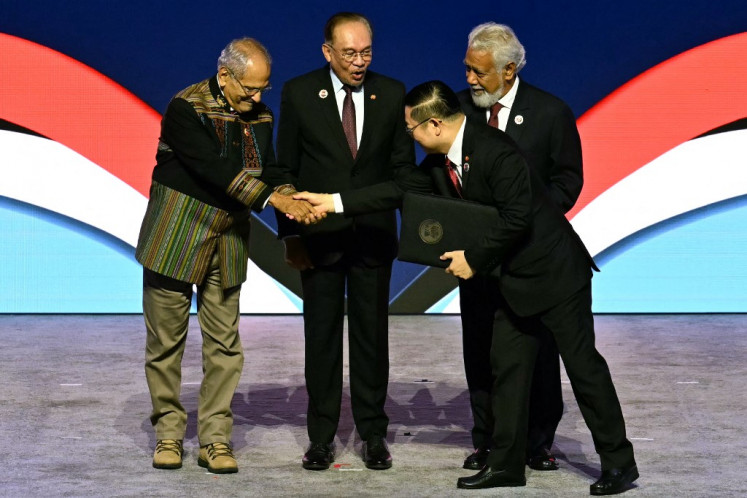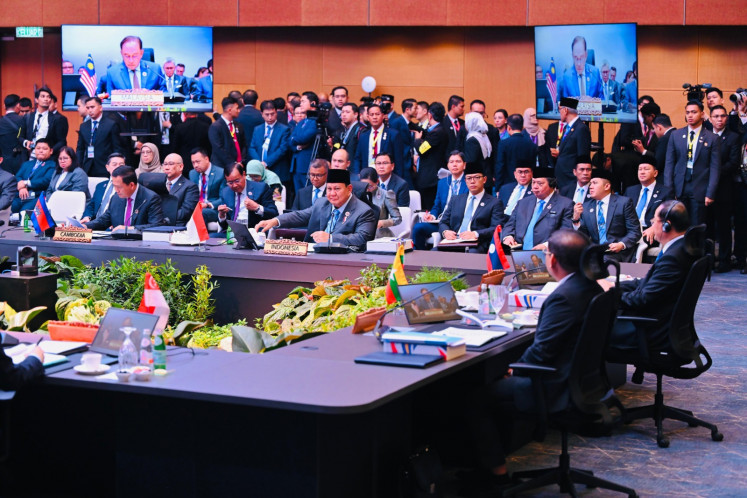Popular Reads
Top Results
Can't find what you're looking for?
View all search resultsPopular Reads
Top Results
Can't find what you're looking for?
View all search resultsIs RI ready for rising conflict in the SCS?
With China becoming more aggressive and assertive in claiming its territories in the South China Sea (SCS), Indonesia has again been caught in the fray over the regionâs most-wanted, resource-rich body of water
Change text size
Gift Premium Articles
to Anyone
W
ith China becoming more aggressive and assertive in claiming its territories in the South China Sea (SCS), Indonesia has again been caught in the fray over the region's most-wanted, resource-rich body of water.
While it is not a claimant country in the SCS dispute, Jakarta is concerned over the escalating conflict in the north that could disrupt peace and stability in ASEAN and the Asia-Pacific region.
The dispute involves China, Taiwan, Vietnam, the Philippines, Malaysia and Brunei Darussalam. The US, which is now casting its eyes on Asia, has also joined the fray to counter China's power by asking Beijing to clarify its 'nine-dash line' that outlines its claims in the SCS.
On the verge of the SCS is Indonesia's Natuna regency, the nation's outermost island in the northern frontier. China has claimed part of Natuna in its 'nine-dash line' map and while Indonesia has sought clarification, the two nations have not brought the issue to international arbitration.
In spite of their strategic positions as the northern frontline of the archipelago and the abundant natural resources they hold, Natuna and Anambas Islands (which separated from Natuna in 2008) are glaringly lacking the basic infrastructure that would enable them to play their strategic roles.
Local residents said Jakarta was not doing enough to boost development in the region. 'With a strong gate, a house will be safely protected. That said, if Indonesia wants to be safe, it should have developed Natuna so that it would be strong,' respected community leader Rodhial Huda told The Jakarta Post. 'Unfortunately, this country has disadvantaged border areas, including Natuna,' he added.
Natuna and Anambas are among the 183 disadvantaged regions in Indonesia due to high poverty rates, poor infrastructure and poor governance. Both administrations recorded that almost 5 percent of their total population still lived in extreme poverty until last year. According to the local office of the Central Statistics Agency (BPS), 76,305 people resided in Natuna in 2012 and 41,388 in Anambas.
With the SCS now becoming a battleground for the US and China, the world's superpowers, to exert their influence, questions have arisen over whether Indonesia is sufficiently attending to its northern frontier.










